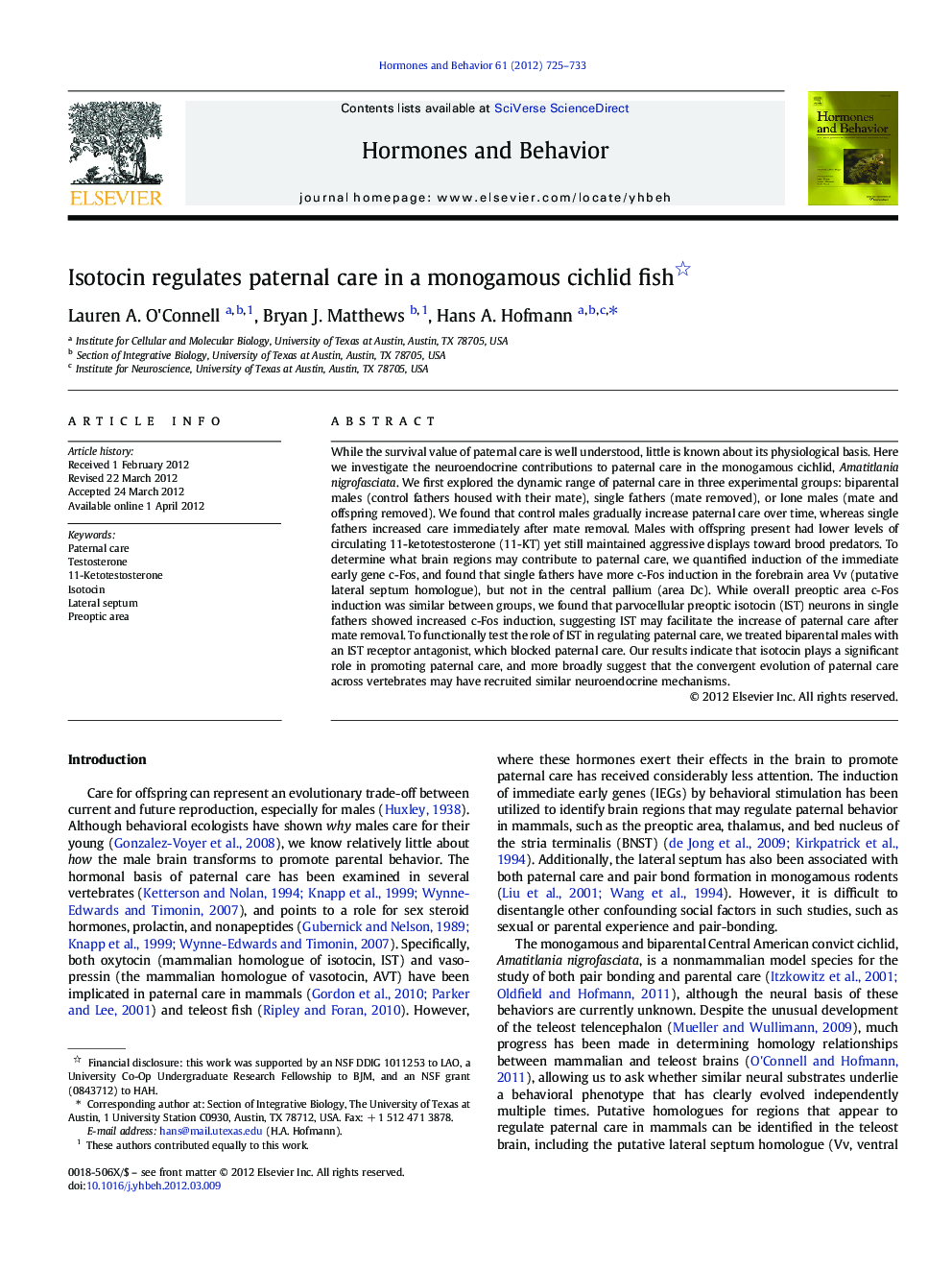| Article ID | Journal | Published Year | Pages | File Type |
|---|---|---|---|---|
| 323433 | Hormones and Behavior | 2012 | 9 Pages |
While the survival value of paternal care is well understood, little is known about its physiological basis. Here we investigate the neuroendocrine contributions to paternal care in the monogamous cichlid, Amatitlania nigrofasciata. We first explored the dynamic range of paternal care in three experimental groups: biparental males (control fathers housed with their mate), single fathers (mate removed), or lone males (mate and offspring removed). We found that control males gradually increase paternal care over time, whereas single fathers increased care immediately after mate removal. Males with offspring present had lower levels of circulating 11-ketotestosterone (11-KT) yet still maintained aggressive displays toward brood predators. To determine what brain regions may contribute to paternal care, we quantified induction of the immediate early gene c-Fos, and found that single fathers have more c-Fos induction in the forebrain area Vv (putative lateral septum homologue), but not in the central pallium (area Dc). While overall preoptic area c-Fos induction was similar between groups, we found that parvocellular preoptic isotocin (IST) neurons in single fathers showed increased c-Fos induction, suggesting IST may facilitate the increase of paternal care after mate removal. To functionally test the role of IST in regulating paternal care, we treated biparental males with an IST receptor antagonist, which blocked paternal care. Our results indicate that isotocin plays a significant role in promoting paternal care, and more broadly suggest that the convergent evolution of paternal care across vertebrates may have recruited similar neuroendocrine mechanisms.
► Male convict cichlids compensate for mate removal by increasing paternal care. ► Paternal care is associated with decreased 11-ketotestosterone levels. ► Increased c-Fos induction in lateral septum is associated with paternal care. ► Induction of c-Fos in preoptic isotocin neurons is higher in single fathers. ► An isotocin receptor antagonist blocks paternal care behavior.
